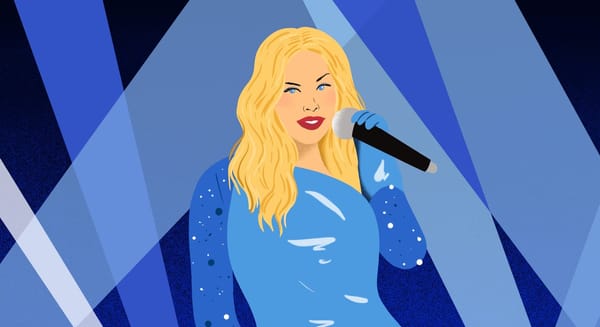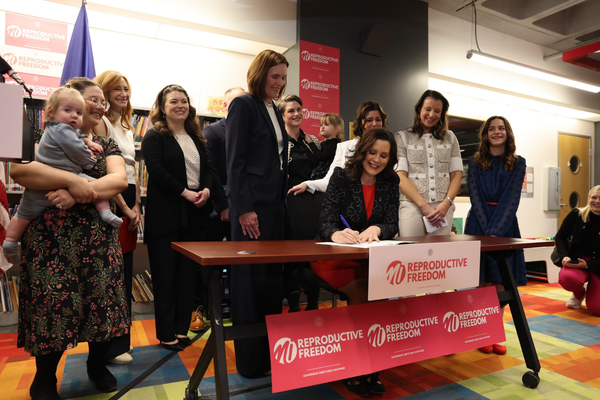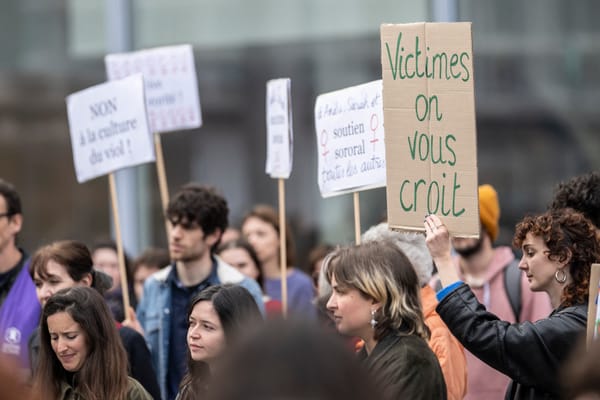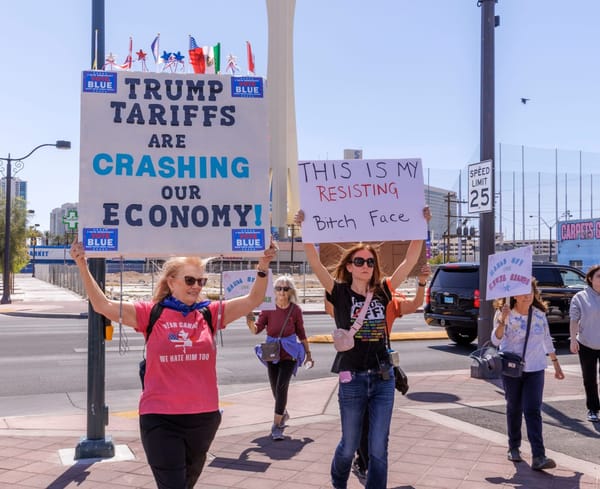The Rebellious Power of the Statement Tee
Women have used their clothing for political ends for years. It’s no wonder we’re seeing an uptick in statement fashion.
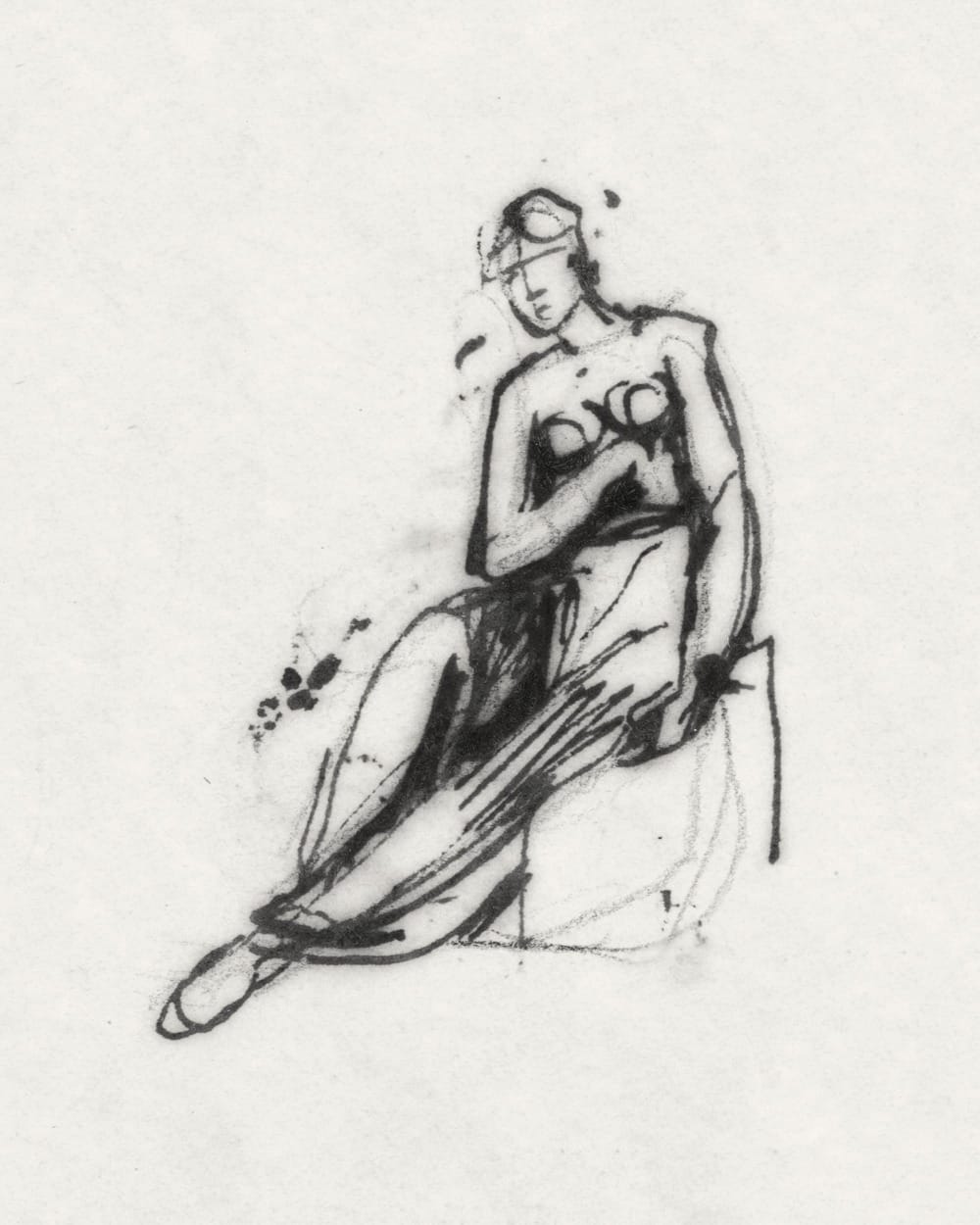
In 1984, the fashion designer Katharine Hamnett was invited to a reception with Margaret Thatcher at 10 Downing Street, to celebrate London Fashion Week. As she shook the hand of the Prime Minister, and the cameras clicked away in the background, Hamnett unzipped her jacket to reveal a white T-shirt underneath, with “58% Don’t Want Pershing,” blasted across her torso. It was a reference to the proliferation of U.S. nuclear missiles across Europe. Thatcher, “bent down to read it and let out a squawk, like a chicken,” Hamnett later recalled. In that moment, the designer cemented her legacy as a godmother of the political T-shirt movement.
Forty years on, that sartorial tradition is still going strong. That is why, one day after Donald Trump was convicted on 34 counts of falsifying business records, the model Emily Ratajkowski was photographed wearing a black T-shirt adorned with the face of Stormy Daniels, who was a key witness in the trial. It was a not-so-subtle message that was more than just a knock on Trump; it was demonstrated allyship for a woman who has received an onslaught of abuse and threats from Trump supporters for speaking out.
This wasn’t the first time Ratajkowski had used clothing to make her political views known: She has previously been seen in a Bernie Sanders T-shirt and, in 2019, with the legend “Fuck Harvey” scrawled up her arm in permanent marker. She has also pointed out that the not wearing of clothes is as much a political statement as any fashion choice. But clothed or not, these statements are made by women celebrities in a way their male peers simply can’t: When you are consistently distilled down to a body; when you are consistently in the line of the male (and female) gaze; the decision to use that body as a political billboard can feel bold, insubordinate, a little bit rebellious.
Because if men are going to look—if they have the need to “ogle beautiful women,” as the editor of the recently-relaunched U.K. men’s magazine Loaded has put it—they should take in everything those women are saying. Politicizing fashion choices is taking those oglers and turning the gaze back on them. It’s saying, “I can’t stop you from staring at me, but I can control what you see—and I will use this as a political platform.”
Power plays
Women have known for centuries that fashion—which is so often dismissed as being too frivolous for serious people to care about—has the power to create effect.


